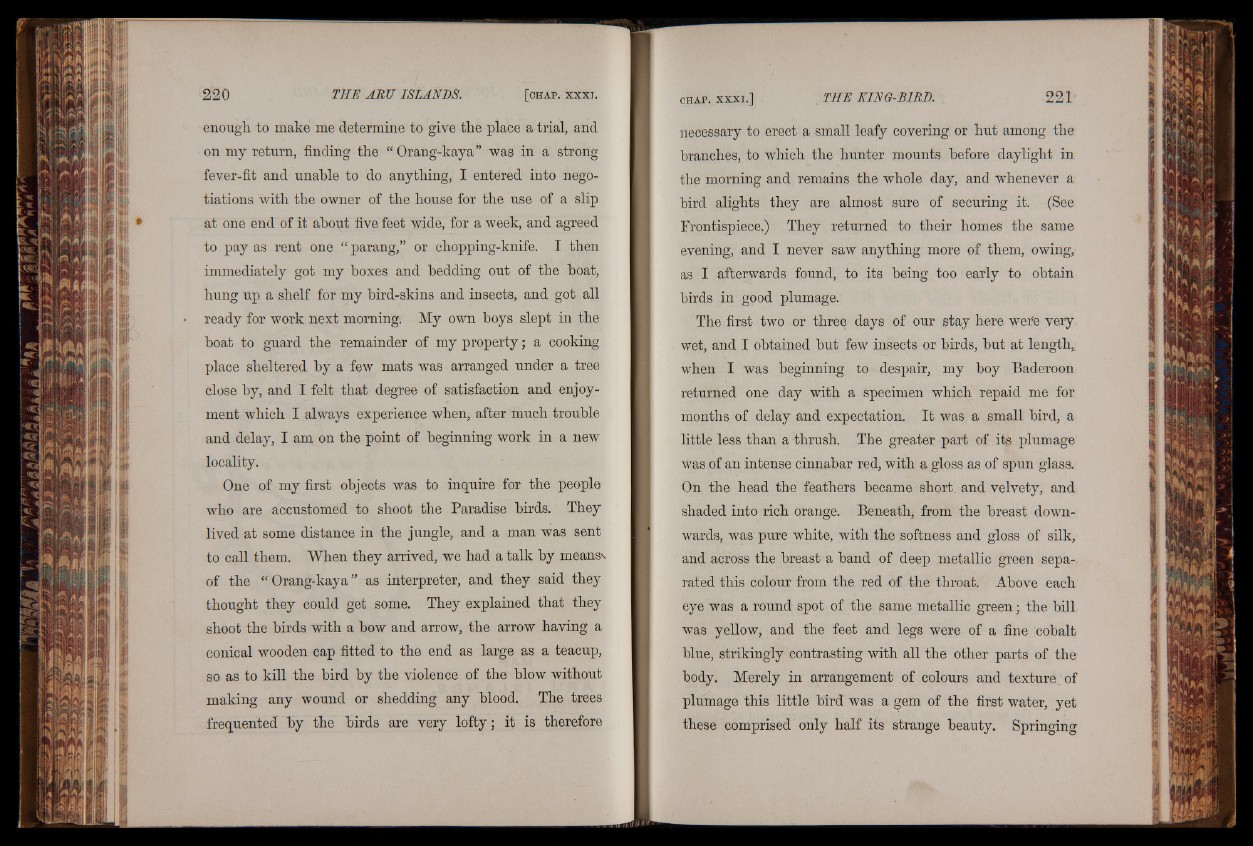
enough to make me determine to give the place a trial, and
on my return, finding the “ Orang-kaya” was in a strong
fever-fit and unable to do anything, I entered into negotiations
with the owner of the house for the use of a slip
at one end of it about five feet wide, for a week, and agreed
to pay as rent one “ parang,” or chopping-knife. I then
immediately got my boxes and bedding out of the boat,
hung up a shelf for my bird-skins and insects, and got all
ready for work next morning. My own boys slept in the
boat to guard the remainder of my property; a cooking
place sheltered by a few mats was arranged under a tree
close by, and I felt that degree of satisfaction and enjoyment
which I always experience when, after much trouble
and delay, I am on the point of beginning work in a new
locality.
One of my first objects was to inquire for the people
who are aceustomed to shoot the Paradise birds. They
lived at some distance in the jungle, and a man was sent
to call them. When they arrived, we had a talk by means\
of the “ Orang-kaya” as interpreter, and they said they
thought they could get some. They explained that they
shoot the birds with a bow and arrow, the arrow having a
conical wooden cap fitted to the end as large as a teacup,
so as to kill the bird by the violence of the blow without
making any wound or shedding any blood. The trees
frequented by the birds are very lofty; it is therefore
necessary to erect a small leafy covering or hut among the
branches, to which the hunter mounts before daylight in
the morning and remains the whole day, and whenever a
bird alights they are almost sure of securing it. (See
Frontispiece.) They returned to their homes the same
evening, and I never saw anything more of them, owing,
as I afterwards found, to its being too early to obtain
birds in good plumage.
The first two or three days of our stay here were very,
wet, and I obtained but few insects or birds, but at length,
when I was beginning to despair, my boy Baderoon
returned one day with a specimen which repaid me for
months of delay and expectation. It was a small bird, a
little less than a thrush. The greater part of its plumage
was of an intense cinnabar red, with a gloss as of spun glass.
On the head the feathers became short, and velvety, and
shaded into rich orange. Beneath, from the breast downwards,
was pure white, with the softness and gloss of silk,
and across the breast a band of deep metallic green separated
this colour from the red of the throat. Above each
eye was a round spot of the same metallic green; the bill
was yellow, and the feet and legs were of a fine cobalt
blue, strikingly contrasting with all the other parts of the
body. Merely in arrangement of colours and texture of
plumage this little bird was a gem of the first water, yet
these comprised only half its strange beauty. Springing